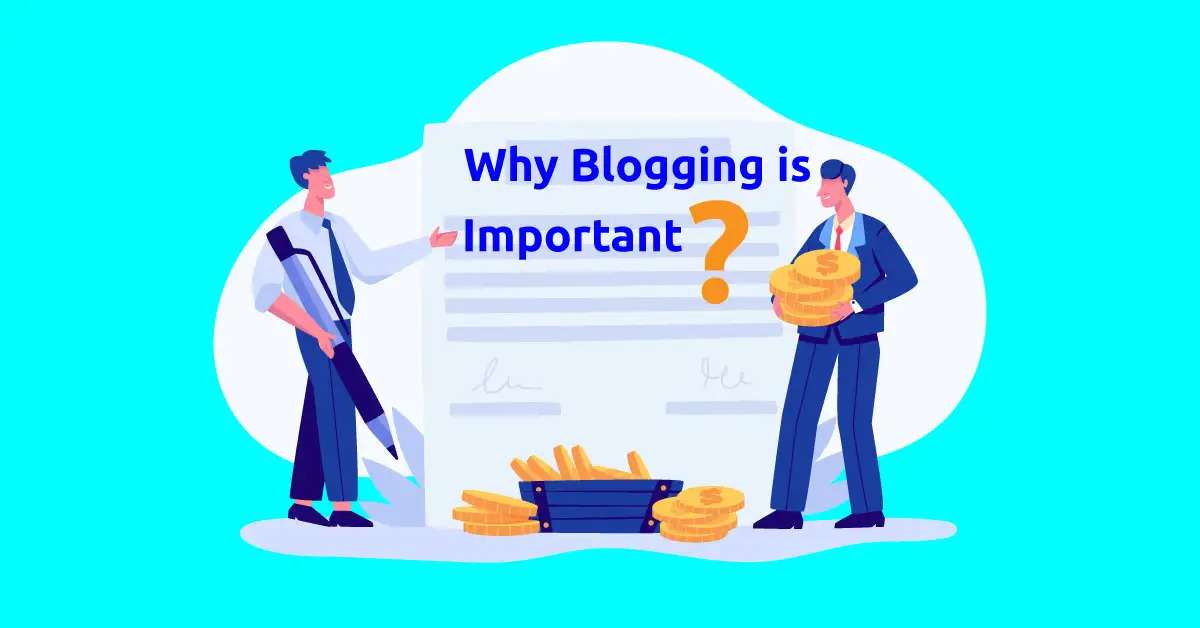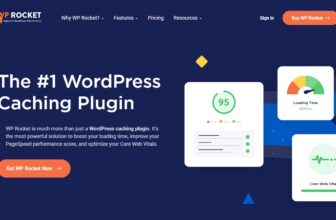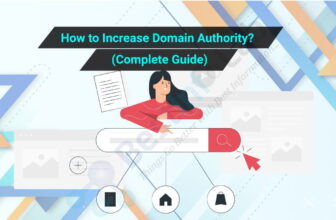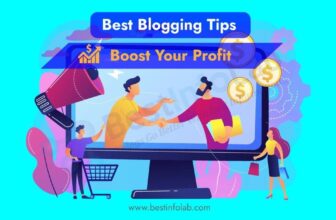
If you click to purchase a product or service through our independent recommendations and unbiased reviews, we may earn a commission. Learn more.
Has the thought “why blogging is important” ever occurred to you? Blogging, on the other hand, has a slew of great advantages that make it a must-do activity for both businesses and individuals.
If you want to learn more about why blogs are important, this article will be very useful to you. In this article, I will discuss the significance of blogging and why your business requires one.
So, without further ado, let us begin –
Why is blogging essential for businesses and individuals?
Inform Your Prospects
One of the most important advantages of blogging for business is that it allows you to educate your prospects. It enables you to communicate directly with your readers and inform them about your company. You can begin by answering the most frequently asked questions about your niche.
Furthermore, you can anticipate problems that your readers may encounter and begin to provide solutions. Once you’ve established your blog as a trustworthy source of information for your readers, you can begin telling them how your products can benefit them.
It aids in traffic generation.
One of the main reasons your company needs a blog is that it allows you to answer the questions that your potential customers have. You can also write other articles that are relevant to your target audience. This will assist you in increasing traffic to your blog.
This traffic can be used to convert your readers into potential customers. After all, it is self-evident that the more traffic your blog receives, the more leads you will be able to generate. Data shows that businesses that blog frequently generate more customers than businesses that do not blog at all.
Enhance your brand’s identity
Do you know that B2B companies spend nearly 5% of their revenue on marketing, whereas B2C spends more than 10%? Many businesses do this simply to present their company as a brand.
Blogging is an often-overlooked but low-cost form of marketing. Though blogging takes time to build your brand identity, it can be the best option in the long run. This is primarily due to the fact that blogging allows your readers to emotionally and psychologically connect with your brand.
When you blog, you give your readers a glimpse into the personal side of your business. This personal aspect is frequently overlooked in outbound marketing techniques. However, by publishing blogs, readers can gain a better understanding of your company’s vision, corporate standards, and personality.
To get the most out of your blog, you can experiment with your writing style, the type of images you use, and, most importantly, the layout of your blog.
Blogging aids in the creation of content for social media.
Ask your social media manager, and you’ll discover that creating meaningful content for social media isn’t as simple as it appears. However, when you blog, you are producing content that people can share on social media. As a result, you will have increased reach and exposure to a new audience.
Blogging can help you keep your social media profiles active without having to rush around looking for new content. If you have a team, you can discuss how they can drive traffic from social media to your blogs and vice versa.
Overall, these blogs can be an excellent addition to your social media content marketing strategy.
You can convert the traffic to your blog into leads.
Obviously, your first priority should be to increase traffic to your blog by publishing multiple posts and using proper SEO. However, once your blog begins to receive traffic, you can begin converting that web traffic into leads.
The more posts and traffic your blog receives, the more leads you will be able to generate. You can easily accomplish this by including a lead-generating call-to-action in each blog post. You can directly promote your products in this manner, but most users will be turned off.
Instead, we recommend that you provide something in exchange for your readers’ information, such as free ebooks, free webinars, fact sheets, trials, big discount alerts, or anything else.
Here is a step-by-step guide to converting the traffic to your blog –
- Create blog content that will help you drive traffic.
- Evaluate and identify some freebies or discounts in exchange for your readers’ information.
- Include a pop-up or banner call-to-action offering freebies in your blog posts.
- Create a landing page where your readers can enter their information to receive the freebies.
- If your offer is compelling enough, your visitors will fill out the form to receive it. You will receive their personal information in exchange.
However, one thing to keep in mind is that you will not be able to convert all of your readers into leads. Instead, we recommend that you set a minimum benchmark for the first month and see if you can meet it. If you can, simply improve it month after month with some progression.
If your visitor-to-lead conversion rate is low, you should reconsider what you’re offering. There’s a chance your freebies, offers, or whatever you’re offering aren’t compelling enough.
Blogs assist your company in establishing authority.
One of the most valuable advantages of blogging for business is that you can assist both the general public and your customers by answering their questions. When you do this consistently and successfully, you establish yourself as a trustworthy source of information in their eyes.
While establishing authority or appearing as an industry leader may not result in a significant increase in sales, it will have a significant impact in the long run.
For example, if someone visits your blogs to find answers to their questions, there is a good chance that they will become customers. This is due to the fact that your blog assisted them with their inquiries.
Similarly, as you begin to publish blogs, you will create a knowledge base that salespeople can use to answer questions that require in-depth explanations or documentation. Furthermore, it makes your company appear more professional.
You can use blogs to establish your company as an industry leader.
When you consistently write high-quality blogs about your industry, you not only help others by educating them, but you also help yourself. However, by demonstrating your expertise in that specific industry, you position your company as an industry leader.
Assume your company manufactures boots. So, by writing about the various materials used in boots, how to check the quality of boots, different fashion tips, different types of shoes, how to style them, and other topics, you will assist your readers in selecting the right type of product for them.
You will not only be able to assist them, but you will also be able to market your skills for your business, as well as your company’s knowledge, service, and products. When you demonstrate your knowledge of your industry, you gain the trust of your customers.
Make it possible for you to connect with your customers.
Blogs also allow you to establish a strong connection with your customers. When your customers visit your website, they can learn about your company, products, and other information.
They can also leave comments on your posts, which allows them to interact with them. Always focus on answering their questions to form a stronger connection. Those responses will also make a favorable impression on other potential customers.
Furthermore, in addition to writing meaningful content, you should write about topics in which your readers will be interested. When you encourage people to do this, they are more likely to participate in other regular articles.
Assist you in improving your search engine rankings
Blogs improve your website’s search engine performance in a variety of ways.
For example, regularly updated content is one of the most important factors that can help you outperform your competitors in SERPs. However, updating fresh content on a regular website with only product pages is not possible.
However, once you begin writing blogs for your business, you will have an endless supply of keyword ideas to write about. Simply make a list of all the keywords, conduct some research to narrow down the list to less competitive keywords, and begin writing articles about them.
This way, you’ll always have new content on your blog, and the more recently published articles you have, the more traffic you’ll be able to drive.
Another significant advantage of blogging on a regular basis is that when you have a large number of articles, you can interlink your products to the relevant articles. Interlinking is another important factor that Google’s algorithm takes into account when ranking SERPs.
Relevancy is another important factor that Google considers when ranking. Even if your company’s website contains relevant content, blogs can help you take that relevancy to the next level. This is why professionals regard content marketing or SEO as an important component of marketing strategy.
Blogging allows you to be independent.
This one may not be very relevant for businesses, but if you are an individual planning to begin your blogging journey, you will find it very helpful.
One of the primary reasons people are transitioning to full-time blogging is the ability to work from anywhere at any time. Assume you wrote a high-quality article that took you about 3-4 days to complete.
Your blog will begin to receive traffic once you publish that article and it begins to rank on SERPs. The good news is that your published article will remain on the internet indefinitely, assisting you in driving traffic as long as people search for that query.
Now, I’m saying that everything in blogging runs on autopilot. You will be in charge of various SEO-related tasks and other responsibilities, but you will still be the boss. And you can do all of that while on vacation, traveling, or doing something else.
Furthermore, if you are an individual, you can concentrate on monetizing your blog. The good news is that there are dozens of approaches you can take to monetize your blog. Affiliate marketing, advertisements, and selling ad spaces are some of the most popular monetization methods.
Sponsored posts are another excellent way to monetize your blog, and they are becoming increasingly popular. You must promote the products of other businesses in this role, and you will be compensated for your efforts.
One of my favorite aspects of blogging is that if you write about evergreen topics, your blog’s traffic will only increase. For example, suppose you published an article this week that took 4-6 weeks to rank.
Your post will generate traffic as long as it is at the top of the SERPs and people are searching for that query. Consider publishing one such article each week. As a result, blogging is a highly scalable way to earn money.
Obviously, you won’t see results overnight, but the more time you put into it, the more traffic you’ll be able to generate and the more money-making opportunities you’ll be able to seize.
The blog can be used to share company news and stories.
Blogging is more than just writing educational content; you can also share your company’s insights, news, stories, and other information with your readers. You can tell stories about how you began your journey and progressed to where you are now.
You can also share employee stories, interviews, and other content. Stories have a way of inspiring people and allowing them to connect with your company’s brand. As a result, publishing inspiring stories will assist you in developing a stronger brand image for your company.
You will discover new things.
If you are a beginner blogger, you will have a good chance of mastering the niche you will write about. For example, when I first started, I used to write about technology because I am a computer science engineer by training who has transitioned professionally into a blogger.
However, when I decided to start a finance blog, I needed to educate myself about the industry. Later, after reading numerous online journals, books, and other materials, I was able to launch a finance blog. I’m currently writing about marketing and SEO.
And this isn’t just my experience. Almost 95% of successful bloggers do not have (or did not have) a degree or educational background in the niche in which they write. They educate themselves first, and then assist others in doing the same.
You will learn a lot of new things if you decide to start a blog. Even if you avoid entering new markets, you will need to learn about marketing, SEO, SMM, and other topics.
Alternatively, if you want to skip the learning phase, you can hire writers with relevant experience and knowledge.
You will improve as a writer.
There’s an old adage that the more you do something, the better you get at it.
This is a 100% true statement, and you may not believe it, but when I first started blogging, I was a terrible writer. But, as time passed, things changed.
If you are already a good writer, you are fortunate, but if you are not, you can begin right away. If you are unsure about your writing or are concerned about grammatical errors, tools such as Grammarly, Ginger, or Linguix can help.
Final Thoughts
If you’ve read this far, you’ve probably realized why blogs are so important. The answer to the question, “What is blogging good for?” is that it is good for everything. Whether you own a small business, a large corporation, or are an individual looking to make money online, blogging can be an excellent option for you.
Blogs can be a valuable asset to your business because they can help you drive more traffic, generate leads, establish a good connection, and, most importantly, improve your overall web visibility.
The benefit of blogging is that it is simple to start and maintain. Furthermore, the blogging community is quite large, and you can find all of the resources you need to start and run a blog on the internet.
With that said, I’d like to conclude this article. If you have any questions, please leave them in the comments section. Our team will respond as soon as possible.
Read: How to start a blog in 2024 – Step by Step Guide










